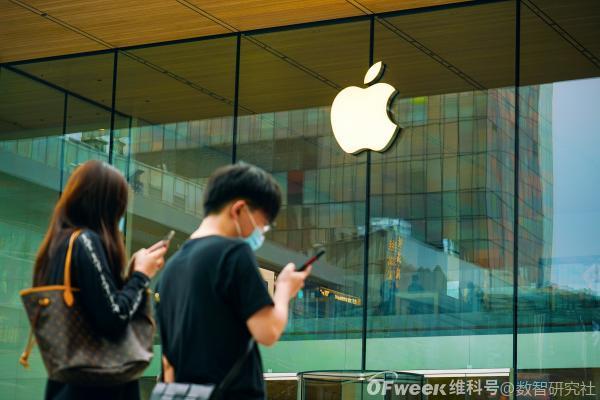Why did Apple's "India Plan" fail rapidly despite Foxconn's return to Zhengzhou?
![]() 08/21 2024
08/21 2024
![]() 534
534

India's manufacturing sector faces intractable structural challenges, such as a declining share of manufacturing in GDP despite economic growth. High-skilled Indian talent tends to flock to Silicon Valley rather than the manufacturing sector. While it is positive that many Indian entrepreneurs hold key positions in global corporations, this trend stifles the growth of India's manufacturing industry.
Recently, the news that Foxconn, Apple's largest assembly partner, has resumed massive hiring in its Zhengzhou industrial park has sparked widespread discussion.
According to reports, Foxconn began recruiting new employees in the Zhengzhou industrial park at the end of July, aiming to hire up to 50,000 workers to fulfill orders for the iPhone 16 series.
Unlike the iPhone 15 series, which saw lackluster sales, the market holds high expectations for the iPhone 16 series, with shipment targets raised to 90 million units in hopes of reversing previous sales slumps.
To meet this significant production capacity demand promptly, higher wages are necessary to attract workers. According to job posting websites and multiple sources, Foxconn's latest hourly wages in the Zhengzhou industrial park have increased significantly, with the monthly salary rising from 6,000 to 7,500 yuan.
The "Digital Intelligence Research Institute" wonders why Foxconn, which has been shifting production to India, is now returning to China. What problems did India pose, and was Foxconn's return voluntary?
We delve into these questions one by one.
In the long run, India represents a vast potential electronic consumer market globally. With a younger population and having surpassed China as the world's most populous country in March 2024, India's attractiveness is surpassing that of China.
However, India's infrastructure, industrial chain, and supply chain still lag behind those of Europe, the United States, and China.
Nonetheless, India is crucial for Apple. Electronic consumer markets, including China, are nearing saturation, whereas Apple's market share in India stands at around 6%, up from just 1% in 2018. This share is projected to double in the coming years, making India an alluring market for Apple.
Moreover, the Indian government, led by Prime Minister Modi, has embraced the slogan "Make in India, Sell in India," aligning with Apple's long-term vision for manufacturing in India. Rumors of low iPhone quality or defect rates in India are unsubstantiated.
Yet, if India is so important, why is Foxconn relocating iPhone 16 production back to Zhengzhou, Henan Province, and even planning to build a new base for new energy vehicle production there?
There's a misconception here. While India's manufacturing sector is often perceived as booming and labor is cheap, this isn't entirely accurate.
According to Deloitte's 2016 Global Manufacturing Competitiveness Index, India was projected to rise from 11th to 5th in manufacturing competitiveness by 2020. However, by 2021, India had slipped to 13th.
Upon closer examination, India's manufacturing sector faces structural challenges. The sector's share in GDP has declined in recent years. Furthermore, India's tech hubs like Bangalore attract talent away from manufacturing, leading many skilled workers to pursue careers in software development or seek opportunities abroad.
As a result, India's manufacturing is concentrated in low-end processes, relying heavily on cheap labor. This lack of core R&D capabilities limits the sector's growth potential.
In February 2022, Foxconn aimed to collaborate with Indian oil giant Vedanta on a $19.5 billion semiconductor wafer fab project. However, Foxconn withdrew in July 2023 due to challenges related to infrastructure, skilled labor, and government-business relations in India.
For Foxconn, contract manufacturing is its core business, but the company aspires for more. In March 2022, Foxconn unveiled its "3+3" strategy, targeting AI, semiconductors, and new communication technologies as core technologies and electric vehicles, digital health, and robotics as future industries. However, Foxconn's investments in these areas in India have proven unsuccessful.
Apple, the world's most valuable company, also faces challenges. In the chip sector, it competes with Qualcomm and MediaTek. AI remains unprofitable, requiring significant investments. Reports suggest that the upcoming iPhone release in September won't include Apple's large language model, with an anticipated release in Q2 2024 at the earliest.
The "Digital Intelligence Research Institute" believes Apple has been overly cautious in recent years, lacking standout projects beyond its transition from x86 to ARM architecture. Other initiatives like Apple Car and Vision Pro have fallen short of expectations.
Given these challenges, Apple must ensure stability and consistency in production. Zhengzhou, with its established infrastructure and skilled labor, offers a safer bet than India's current capabilities. Foxconn's Chairman Liu Yangwei reportedly spent over four days in Zhengzhou to oversee operations, underlining the importance of this decision.
For Foxconn, ensuring stability and sustainability in its contract manufacturing for Apple is paramount. While India holds immense potential, it currently cannot meet Apple's demands. Apple doesn't aspire to make India its next global manufacturing hub. Instead, it seeks reliable production in Zhengzhou.
For a win-win-win scenario involving Foxconn, Zhengzhou, and Apple, cooperation must continue. Zhengzhou needs job creation, Foxconn seeks growth, and Apple demands stability and consistency. Thus, Zhengzhou has been reaffirmed as a strategic location.
We must also consider the competition from neighboring countries like the Philippines and Vietnam, which pose significant threats.







